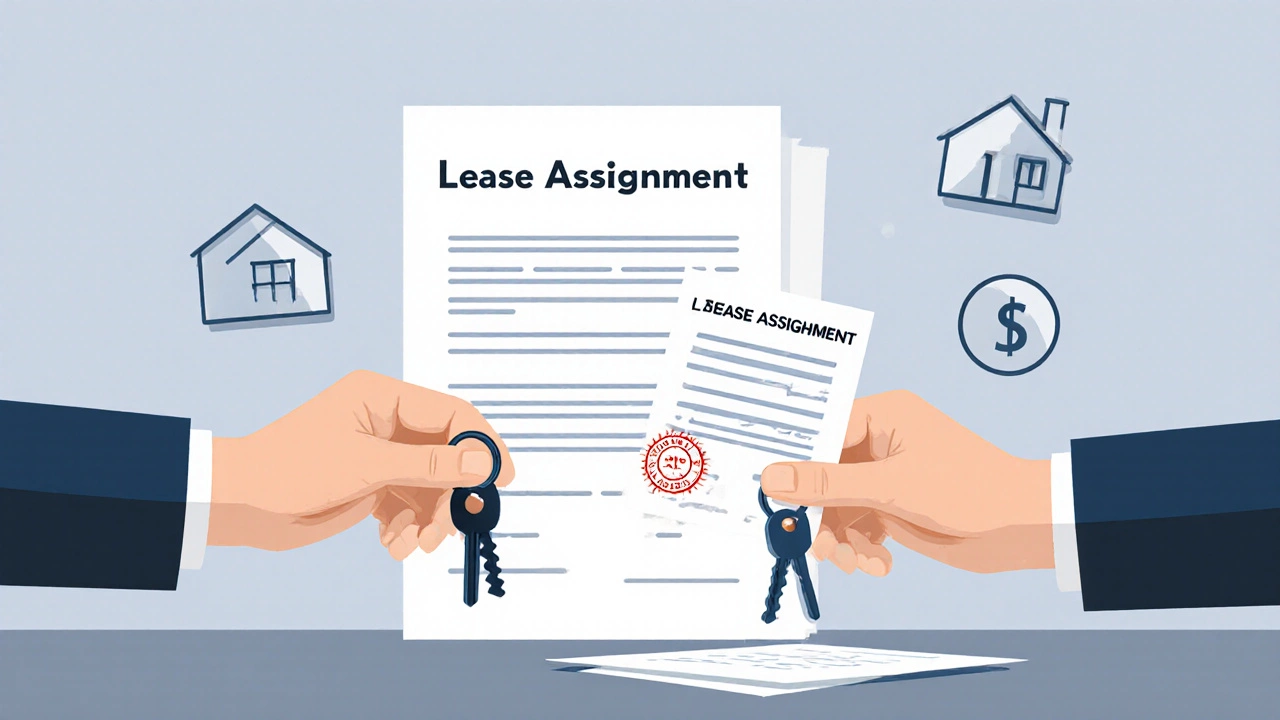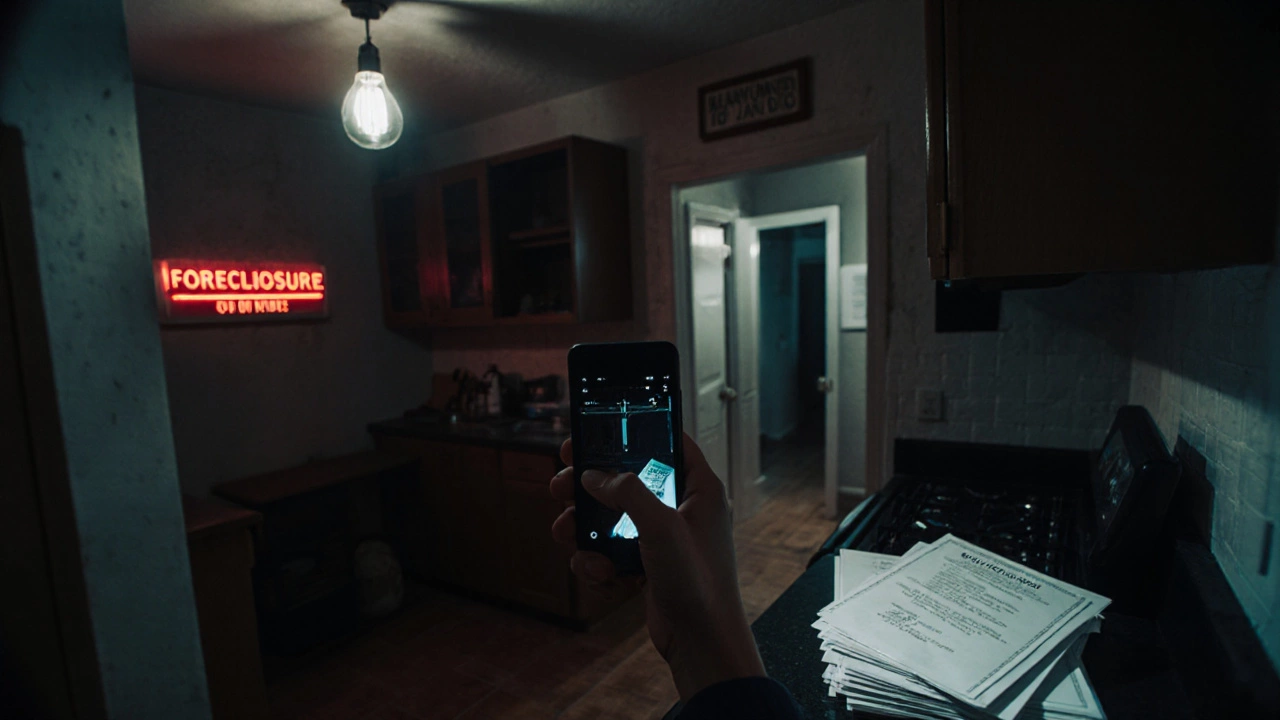Virginia Rental Rights Calculator
What Type of Sale Is Happening?
Your Rights & Requirements
Key Actions
Finding out that your landlord plans to sell the house you’re renting can feel like a curveball. The big question most renters worry about is whether the sale will force them out or change the terms of their lease. In Virginia, the answer hinges on the state’s landlord‑tenant statutes, the type of lease you have, and how the sale is handled. Below we break down what the law says, what rights you keep, and the steps you should take to protect yourself.
Quick Takeaways
- The landlord can sell the property at any time, even if you have a lease.
- Your existing lease stays in force; the new owner steps into the landlord’s shoes.
- Virginia law requires proper notice before the new owner can demand you vacate.
- Security deposits must be transferred to the buyer or returned to you.
- If the sale involves foreclosure, different rules may apply and you could receive a notice to vacate sooner.
Can a Landlord Sell While You’re Living There?
Yes. In Virginia there is no statutory prohibition on a landlord selling a rental property during an active tenancy. The sale is treated like any other real‑estate transaction, and the buyer simply takes over the landlord’s rights and obligations under the existing lease. The key legal reference here is the Virginia Residential Landlord and Tenant Act, which governs the relationship between landlords and tenants but does not bar the transfer of ownership.
What Happens to Your Lease When the Property Changes Hands?
The lease does not automatically terminate just because the property is sold. Instead, the buyer steps into the role of the landlord and is bound by every term in the current lease-rent amount, lease length, pet policies, and any agreed‑upon utilities. This is known as the “assignment of the lease.” As long as the lease remains in effect, you have the right to stay until the lease expires or you legally end it.

Notice Requirements for Ending a Lease During a Sale
If the new owner wants you out before the lease ends, they must follow the same notice rules that apply to any landlord in Virginia. For a month‑to‑month tenancy, a 30‑day written notice is required. For a fixed‑term lease, the landlord (or new owner) can only terminate early for specific reasons listed in the lease, such as a breach of contract, or by mutual agreement. The notice must be in writing and delivered according to the method required by the lease (hand‑delivery, certified mail, or another approved method).
Security Deposit: Who Holds It After the Sale?
Virginia law (§55.1‑1248) mandates that the security deposit be transferred to the buyer at closing. The buyer then becomes the party responsible for returning the deposit at the end of the tenancy, minus any lawful deductions. If the landlord fails to transfer the deposit, the tenant can sue the original landlord for the amount plus statutory damages. It’s a good idea to get written confirmation of the deposit transfer for your records.
When the New Owner Wants to Move In
Some buyers purchase a rental property with the intent to occupy it themselves. In that case, they must still honor the existing lease unless they can legally terminate it. The most common legal pathway is to wait until the lease expires and then give proper notice. If the lease contains an early‑termination clause that allows the landlord to end the tenancy for owner‑occupancy, the clause must be clearly written and the notice period must comply with state law.
Steps Tenants Should Take When a Sale Is Announced
- Ask for written notice. Request a formal letter detailing the sale, the expected closing date, and the contact information of the buyer or property manager.
- Review your lease. Look for any clauses about sale, assignment, or early termination.
- Confirm the security deposit transfer. Ask the landlord for a receipt or a copy of the closing statement showing the deposit moved to the buyer.
- Document the property’s condition. Take photos or videos before the new owner takes over to protect yourself from wrongful damage claims.
- Know your rights. If you receive a notice to vacate that seems improper, consult the Virginia Residential Landlord and Tenant Act or a local attorney.
- Plan ahead. If you anticipate needing to move, start looking for a new place early to avoid a rushed relocation.

Special Situations: Foreclosure and Court‑Ordered Sales
When a rental property is foreclosed, the tenant’s rights can change quickly. The new owner-often a bank-must honor the lease until it expires, but many banks choose to terminate tenancies early. Federal notice requirements (the Protecting Tenants at Foreclosure Act, though expired, still influences practice) often result in a written notice giving the tenant at least 90 days to vacate. If you receive a foreclosure notice, treat it like any other termination notice: verify the date, ensure it’s in writing, and understand your options-such as negotiating a cash‑for‑keys deal.
Comparison of Common Sale Scenarios
| Scenario | Lease Status | Notice Needed to Vacate | Security Deposit Handling |
|---|---|---|---|
| Standard sale to investor | Lease remains in force | 30‑day (month‑to‑month) or lease‑end date | Transferred to buyer at closing |
| Buyer intends owner‑occupancy | Lease may be terminated only at expiry or if lease permits early termination | 30‑day (if month‑to‑month) or as per lease clause | Transferred; buyer becomes deposit holder |
| Foreclosure sale | Lease generally honored until end, but banks often issue 90‑day notice | 90‑day written notice typical | May be retained by bank or returned by former landlord |
Bottom Line: Your Lease Usually Survives the Sale
In most cases, a landlord’s decision to sell does not automatically throw you out. The Virginia landlord selling rental must honor the existing lease, transfer the security deposit, and provide proper notice if they want you to leave early. Knowing these rights helps you stay in control, avoid surprises at closing, and protect your finances.
Frequently Asked Questions
Can a landlord end my lease just because they sold the house?
No. The lease remains valid until its natural end date or until both parties agree to terminate. The new owner steps into the landlord’s shoes and must follow the same notice rules.
Do I have to move out before the sale closes?
Not unless your lease specifically allows early termination. You can stay until the lease expires or you receive a proper written notice that complies with Virginia law.
What should I do if the landlord doesn’t transfer my security deposit?
Request written proof of the transfer. If the landlord refuses, you can file a claim in small claims court for the deposit plus any statutory damages allowed under Virginia law.
Will my rent amount change after the sale?
Only if the lease itself permits a rent increase or you sign a new lease with the buyer. Otherwise, the existing rent amount stays the same for the lease term.
How does foreclosure affect my tenancy?
A foreclosure buyer (often a bank) must honor the lease, but many banks issue a 90‑day notice to vacate. Review any notice carefully and consider legal advice to negotiate additional time or a cash‑for‑keys settlement.
